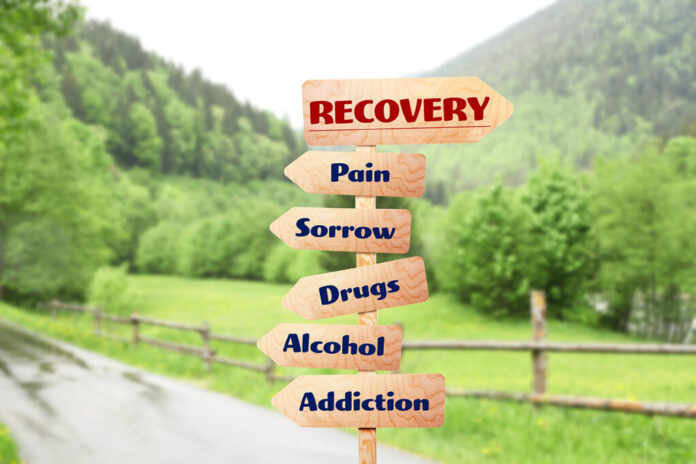Addiction has long been one of society’s most pressing challenges, affecting millions of individuals and their families worldwide. For decades, traditional treatments like rehabilitation programs, counseling, and medication have been the go-to solutions. While these methods have helped many, relapse rates and barriers to long-term recovery remain high. The landscape, however, is shifting rapidly. New therapies, advanced technology, and a deeper understanding of human behavior are opening the doors to innovative solutions. The future of addiction recovery is not just about abstinence—it’s about breaking free, healing the mind, and creating lasting change.
A Changing Perspective on Addiction Recovery
For years, addiction was primarily viewed through the lens of willpower and discipline. The idea was simple: people just needed to say no and stay strong. Modern science, however, has revealed a much more complex picture. Addiction is now recognized as a brain-based condition, involving reward systems, emotional triggers, and deep-rooted subconscious patterns. This means that effective recovery requires addressing not only the physical dependence but also the psychological and emotional drivers that keep individuals trapped.
By acknowledging addiction as a multifaceted challenge, the future of addiction recovery is becoming more compassionate, holistic, and evidence-based. Instead of placing blame on individuals, the focus is shifting toward empowering them with the right tools, therapies, and support systems to break free for good.
The Role of Neuroscience in Addiction Recovery
Advances in neuroscience are reshaping how experts understand and treat addiction. Studies reveal how substances hijack the brain’s reward circuits, making cravings incredibly powerful and often overwhelming. This knowledge is helping specialists develop targeted interventions to retrain the brain.
Hypnotherapy, for instance, has emerged as a groundbreaking approach. By accessing the subconscious mind, hypnotherapy can reprogram harmful thought patterns and reduce the mental associations that fuel cravings. Specialists like Darren Carter in the UK are leading the way with evidence-based hypnotherapy tailored to addiction recovery. His method focuses on addressing the root cause of habits, reducing triggers, and restoring emotional balance. This approach represents the future—working directly with the subconscious to rewire how individuals respond to temptation and stress.
Technology and Digital Solutions
Technology is playing a transformative role in addiction recovery. Mobile applications, telehealth sessions, and virtual support groups are making treatment more accessible than ever before. For individuals who might feel isolated or hesitant to seek help in person, digital platforms provide privacy, convenience, and around-the-clock resources.
Apps designed for recovery now include features such as progress tracking, mindfulness exercises, motivational content, and instant access to professional support. Artificial intelligence is also being tested to predict relapse risks by analyzing behavior patterns, offering timely interventions before a setback occurs.
The combination of human expertise and digital tools is a powerful step toward a future where recovery support is always within reach.
Holistic Approaches Gaining Ground
Another major shift in addiction recovery is the embrace of holistic care. Rather than treating addiction in isolation, holistic approaches focus on the entire person—their mental health, physical wellbeing, relationships, and lifestyle. Practices such as meditation, yoga, nutritional therapy, and mindfulness are increasingly being integrated into recovery programs.
Holistic therapies work alongside evidence-based treatments like hypnotherapy or counseling to strengthen resilience and create long-term stability. By addressing stress management, emotional regulation, and self-awareness, individuals are better equipped to navigate life’s challenges without falling back into destructive patterns.
Personalized Recovery Plans
No two people experience addiction in the same way, so why should recovery be one-size-fits-all? The future is leaning strongly toward personalized recovery plans, tailored to each individual’s history, triggers, and goals.
Darren Carter’s confidential and private hypnotherapy sessions, for example, are customized for every client, ensuring their unique needs are met. By understanding each person’s background and challenges, addiction recovery can be more effective and sustainable. Personalized strategies allow individuals to not only overcome their addictions but also rebuild their confidence, relationships, and sense of self-worth.
Preventing Relapse with Subconscious Reprogramming
One of the greatest challenges in addiction recovery is relapse. Traditional methods often focus on willpower and conscious decision-making, but cravings and habits live deep within the subconscious. This is where reprogramming becomes vital.
Hypnotherapy works by targeting the subconscious directly, reducing cravings and replacing destructive patterns with healthier responses. This not only helps prevent relapse but also empowers individuals to develop new habits that align with their goals and values. By shifting focus from simply resisting temptation to rewiring thought patterns, the likelihood of long-term success greatly increases.
The Importance of Confidential Support
Many people struggling with addiction hesitate to seek help due to fear of judgment, stigma, or exposure. Confidentiality is therefore becoming a cornerstone of modern recovery services. Private sessions ensure individuals feel safe, respected, and understood throughout their journey.
With specialists like Darren Carter providing tailored, discreet, and professional care, clients can engage in addiction recovery without fear. This privacy empowers them to fully commit to the process, knowing their struggles and progress remain protected.
A Vision for the Future of Addiction Recovery
Looking ahead, addiction recovery is becoming more hopeful, innovative, and effective. The integration of neuroscience, hypnotherapy, technology, and holistic care is paving the way for a more comprehensive approach. Instead of focusing solely on stopping harmful behaviors, the future emphasizes transformation—helping people rebuild their confidence, regain control, and create a fulfilling life free from addiction.
As more specialists adopt evidence-based and personalized methods, recovery will no longer feel like an uphill battle. Instead, it will be a journey of empowerment, healing, and growth. The stigma surrounding addiction is also gradually diminishing, opening doors for more people to seek the help they need without fear or shame.
Conclusion
Breaking free from addiction is no longer just about resisting cravings—it’s about rewiring the mind, healing the subconscious, and creating a new way of living. With advances in hypnotherapy, neuroscience, and technology, individuals now have more tools than ever to achieve lasting success. Specialists like Darren Carter are at the forefront of this movement, offering tailored and confidential support to those ready to reclaim their lives.
